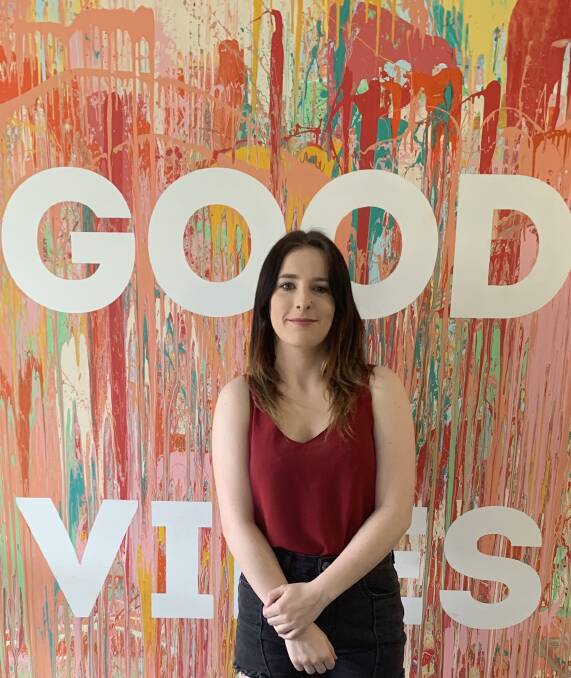
Arie Eddy was 18 years old when he found himself homeless living from couch to couch every week.
Subscribe now for unlimited access.
$0/
(min cost $0)
or signup to continue reading
Now 23, Arie, who lives in Hamilton in Victoria's south-west, realises how homelessness was a major factor in worsening his poor mental health.
"My mood swings were extremely bad, so there were multiple times that I had suicidal thoughts or attempted suicide," Arie said.
"I felt like a failure because I felt judged by other people, including a psychologist, for not being able to find a home or work."
We are in a mental health and youth homelessness crises. On any given night, 39 per cent of Victorians experiencing homelessness are aged under 24.
Youth Affairs Council Victoria (YACVic)'s submission to the Royal Commission into the Victorian Mental Health System: Beyond Access found that mental illness is more prevalent among young people experiencing homelessness than those with secure housing and the longer that young people experience homelessness the more likely they will develop serious mental illness.
In rural and regional areas, the lack of opportunity given to young people like Arie due to stigma is a significant contributor.
"Real estates and private landlords aren't willing to give people a go if they're unemployed. And businesses aren't willing to employ people who aren't trained, they only look for people experience," Arie said. "Being denied and rejected on so many rental applications and jobs only made me feel worse. It took me four years to find a job."
For Arie, who lives with bipolar-1 disorder, it wasn't until he found a role model, and reconnected with family that his situation improved. The options appear even more limited for young people under 18. If there isn't support from family or friends, then residential or out-of-home care are final resort options.
Tori Buchanan was 16 and didn't know that she was homeless. "I didn't consider myself homeless because I was staying at friend's houses and wasn't living on the street. But my friends said the difficult circumstances with my family meant that I should seek help," Tori said.
It wasn't until a teacher noticed the warning signs that they approached Tori and referred her onto Brophy Family Services.
"I used to skip school half of the week, because I blamed myself for what went wrong. When you're in a situation where you don't have a place to go, and don't have a lot of options. You feel pushed aside, you feel alienated and it beats you down a lot," Tori said.
"I didn't know anything about mental health at the time. I was a bit of a loner, so whenever I felt stressed or overwhelmed, I would just run away and go on a walk and calm down. I thought if I showed it, everyone would see that, they would think I was being weak."
Now, Tori lives at the Foyer Warrnambool, a community of young people aged 16-25 years old.
"They helped me with getting onto Centrelink and supported me to learn skills around independence," Tori said. "I knew I liked working in a cafe, and they helped me into finding a hospitality short course at TAFE. They also helped me get a bus pass, so I can start going to school again.
"The Foyer has helped me meet new people, made me feel more comfortable and confident in opening up to people and making friends."
YACVic's submission also identified the need for greater co-ordination between housing and mental health services. Training mental health services in identifying clients and referring them to local housing services and vice-versa would be essential in re-establishing community support for marginalised young people.
Young people identified that addressing homelessness was paramount to improving the mental health of young people in rural and regional Victoria. With a stable roof over their heads, Tori and Arie are hitting new strides with their lives.
"I feel like I have come a long way. I feel more relaxed and in control, and my worries that I was never going to be good enough have gone away," Tori said. "I really enjoyed learning about art and business, and I love hospitality, so I want to combine those interests somehow, maybe in events or even starting my own cafe."
Arie, now a proud father of three, is a support worker for people with disability, and volunteers his time as an administrator for the Facebook page "I'm not different, I have Bipolar", supporting people living with bipolar disorder around the world. "I want to give people what I didn't have. I want to give people the help they need that was never really available to me," Arie said.
Both Tori and Arie wish they sought out help sooner.
"If I had asked for help and sought out services available to me sooner, it would have changed the course of my life," Arie said.
"It is good to talk to someone and to give everyone a chance, because it really does help to remember that there is always someone who will listen and support you," Tori said. "You can break the cycle."
Thomas Feng is YACVic's media and communications manager.
- For support, contact Beyond Blue (1300 224 636), Lifeline (13 11 14) or Headspace (1800 650 890). If your life is in immediate danger, please call 000.

